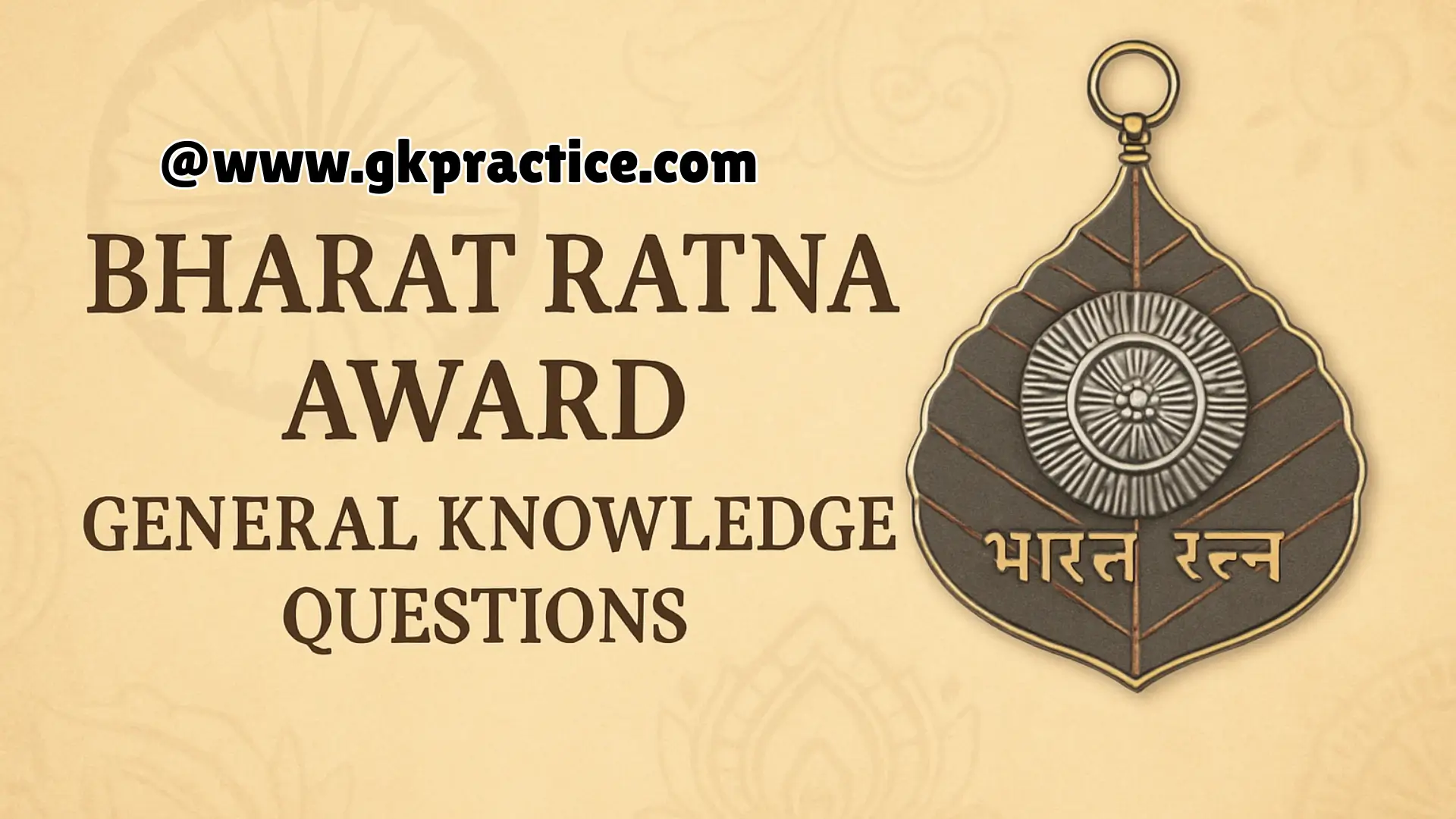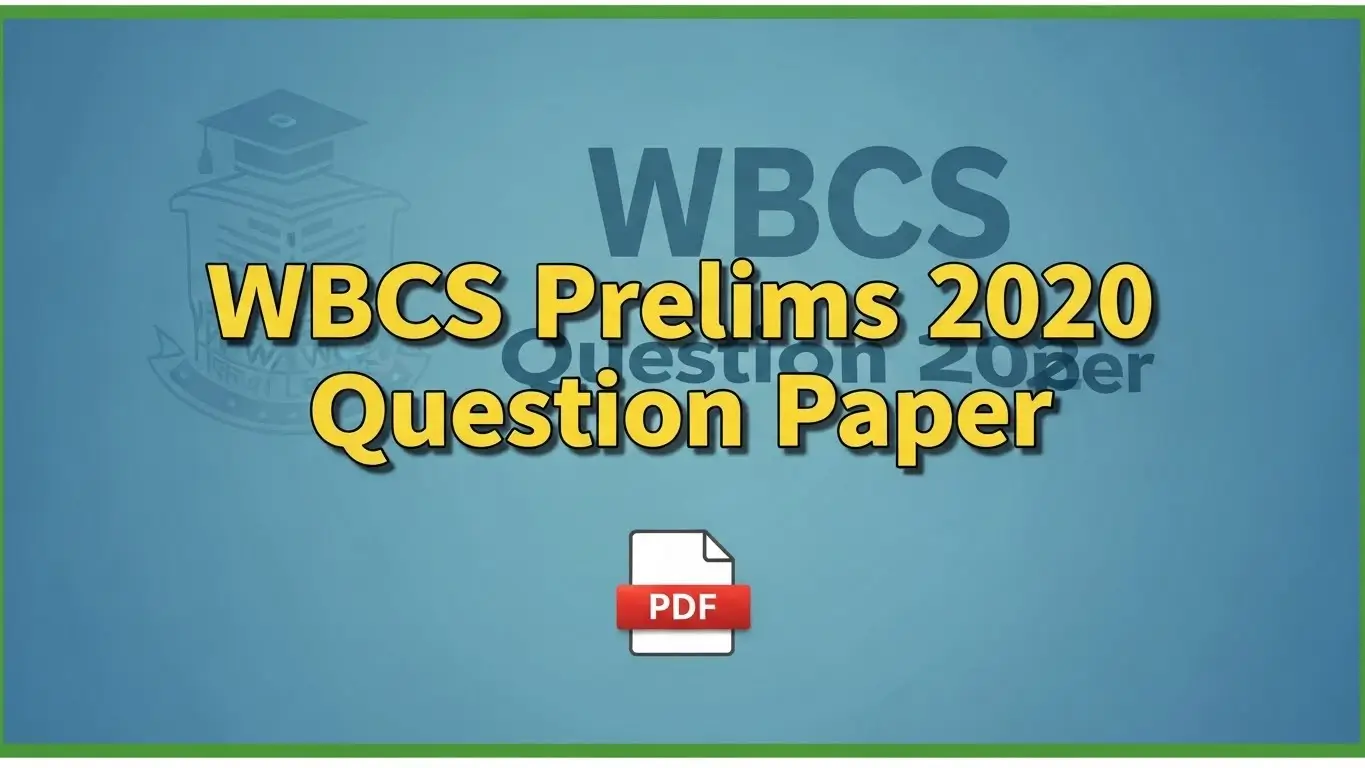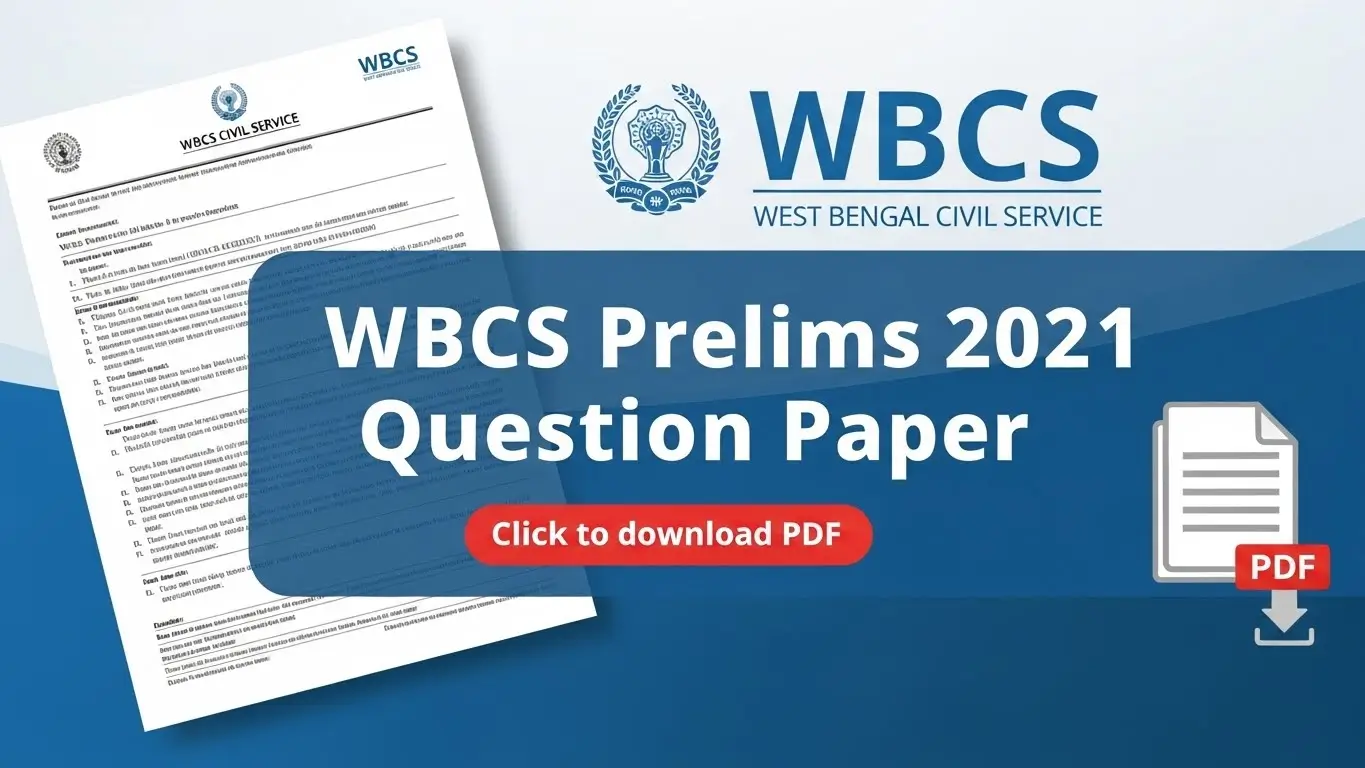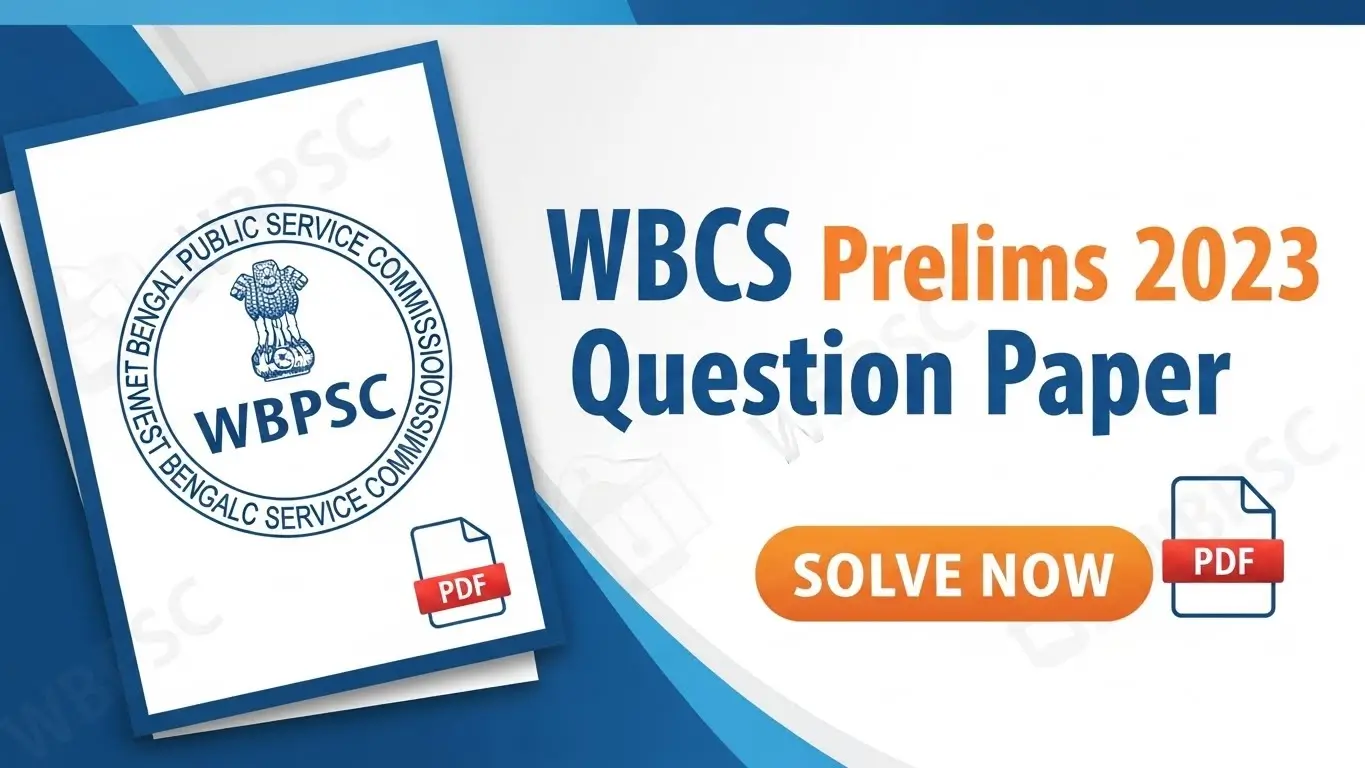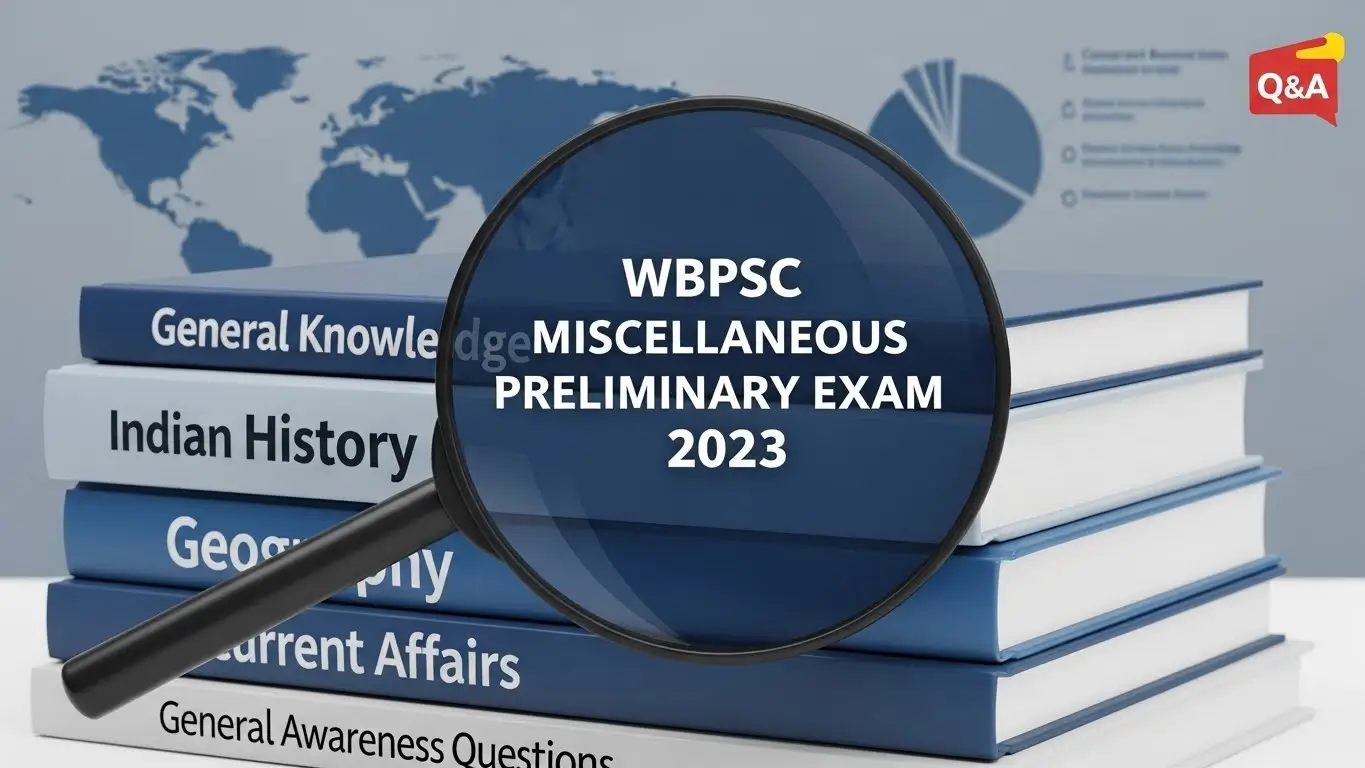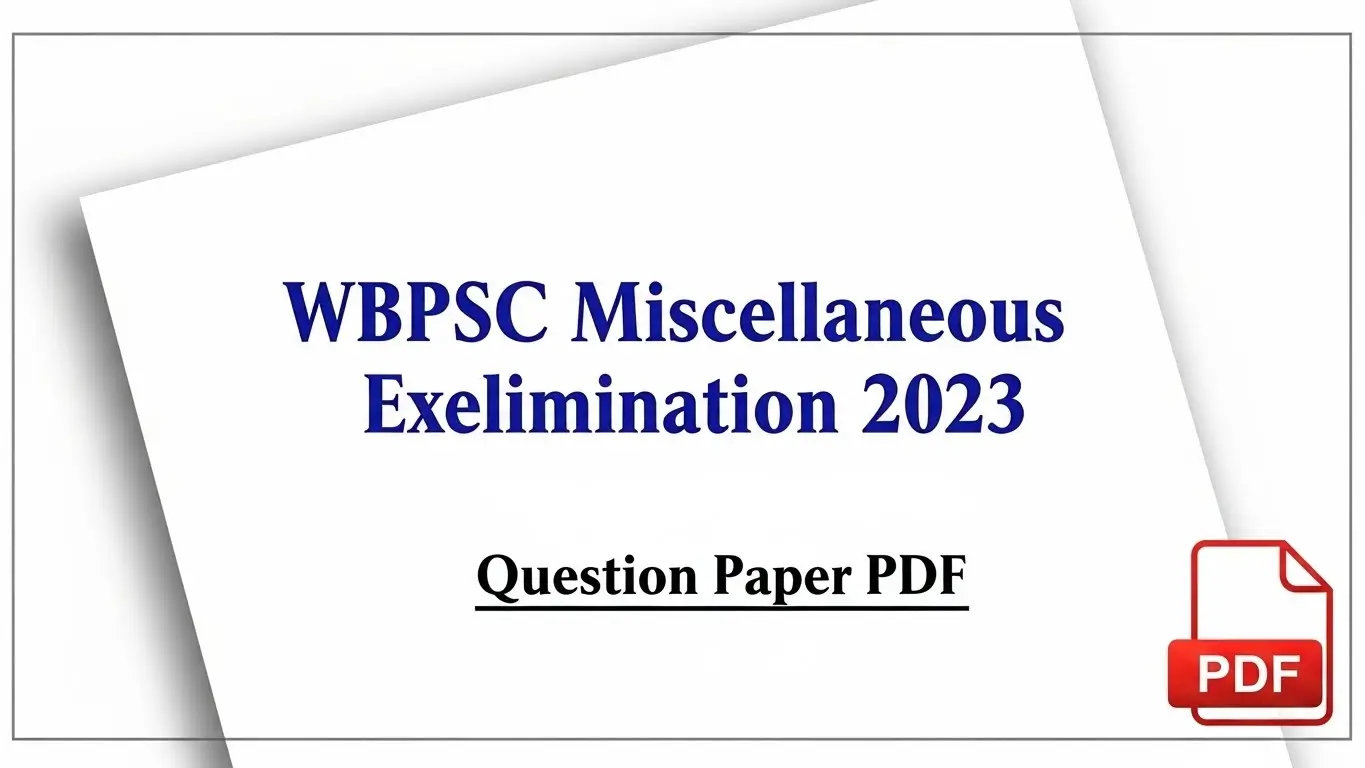Prepare for competitive exams with our exclusive set of Bharat Ratna Award General Knowledge Questions. Explore MCQs with answers and explanations covering history, recipients, and important facts about India’s highest civilian award.
Test Your Knowledge With These Bharat Ratna Award General Knowledge Questions– India’s Highest Civilian Honour:-
Q1) Who was the first recipient of the Bharat Ratna in 1954?A) Dr. S. Radhakrishnan
B) C. Rajagopalachari
C) Jawaharlal Nehru
D) Dr. B. R. Ambedkar
Explanation: In 1954, the Bharat Ratna was first awarded to C. Rajagopalachari (last Governor-General of India), Dr. Sarvepalli Radhakrishnan, and C. V. Raman. Rajagopalachari was recognized for his exceptional service as a statesman and freedom fighter.
Q2) Which of the following is the highest civilian award of India?
A) Padma Vibhushan
B) Param Vir Chakra
C) Bharat Ratna
D) Ashoka Chakra
Explanation: Bharat Ratna is the highest civilian award in India, instituted in 1954. It is conferred for exceptional service in art, literature, science, and public service. Military and political leaders have also been honored with this award.
Q3) Who was the first woman recipient of the Bharat Ratna?
A) Mother Teresa
B) Indira Gandhi
C) Sarojini Naidu
D) Lata Mangeshkar
Explanation: Indira Gandhi, India’s first woman Prime Minister, became the first female recipient of Bharat Ratna in 1971. She was honored for her bold leadership, especially during the Bangladesh Liberation War of 1971, which led to the creation of Bangladesh.
Q4) Which year was Bharat Ratna instituted?
A) 1947
B) 1950
C) 1954
D) 1962
Explanation: Bharat Ratna was instituted in 1954 by the Government of India. It was created to recognize the highest degree of national service and contribution to society in different fields like literature, arts, science, and public service.
Q5) Who among the following was awarded Bharat Ratna posthumously in 1990?
A) Dr. B. R. Ambedkar
B) Rajiv Gandhi
C) Vallabhbhai Patel
D) M. G. Ramachandran
Explanation: Dr. B. R. Ambedkar, the principal architect of the Indian Constitution, was awarded Bharat Ratna posthumously in 1990. His work for social justice and upliftment of marginalized communities made him one of India’s greatest leaders.
Q6) Which of the following personalities was a scientist Bharat Ratna awardee?
A) A. P. J. Abdul Kalam
B) Lata Mangeshkar
C) Atal Bihari Vajpayee
D) Rajiv Gandhi
Explanation: Dr. A. P. J. Abdul Kalam, known as the “Missile Man of India,” received the Bharat Ratna in 1997 for his outstanding contribution to India’s space and missile programs. He later became the 11th President of India.
Q7) Which Prime Minister of India has NOT received the Bharat Ratna?
A) Jawaharlal Nehru
B) Lal Bahadur Shastri
C) Indira Gandhi
D) Morarji Desai
Explanation: Morarji Desai, the 4th Prime Minister of India, has not received Bharat Ratna. Jawaharlal Nehru, Lal Bahadur Shastri, and Indira Gandhi were awarded Bharat Ratna for their significant political leadership and service to the nation.
Q8) Who was the youngest recipient of the Bharat Ratna?
A) Sachin Tendulkar
B) Rajiv Gandhi
C) Indira Gandhi
D) M. S. Subbulakshmi
Explanation: Sachin Tendulkar, the legendary Indian cricketer, became the youngest Bharat Ratna awardee in 2014 at the age of 40. His contribution to Indian cricket and inspiration to millions earned him this prestigious honor.
Q9) Who was the first non-Indian citizen to receive the Bharat Ratna?
A) Mother Teresa
B) Nelson Mandela
C) Khan Abdul Ghaffar Khan
D) Martin Luther King Jr.
Explanation: Also known as “Frontier Gandhi,” Khan Abdul Ghaffar Khan from Pakistan received Bharat Ratna in 1987. He was honored for his role in India’s independence movement and his philosophy of non-violence.
Q10) Who was the first musician to receive the Bharat Ratna?
A) Ravi Shankar
B) M. S. Subbulakshmi
C) Lata Mangeshkar
D) Bhimsen Joshi
Explanation: Carnatic vocalist M. S. Subbulakshmi became the first musician to receive Bharat Ratna in 1998. Her devotional songs and contribution to Indian classical music brought global recognition to Indian traditions.

